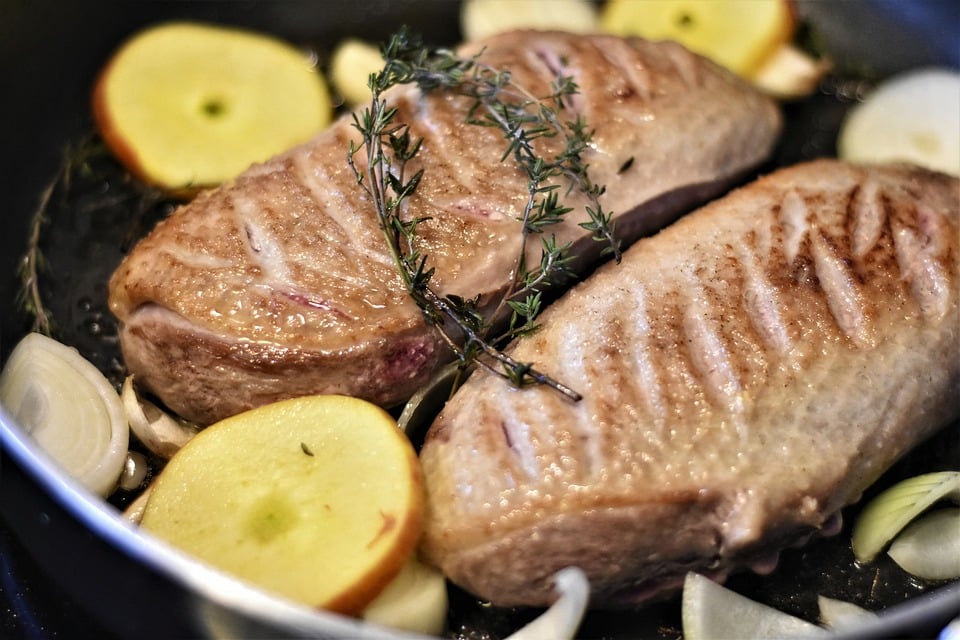The Benefits of Grain-Free Dog Food for Canine Health
In recent years, there has been a growing trend towards feeding dogs a grain-free diet. Many pet owners have switched to grain-free dog food in the belief that it is a healthier option for their furry companions. But is grain-free dog food really better for your dog’s health? In this article, we will explore the benefits of grain-free dog food and how it can contribute to canine health.
What is Grain-Free Dog Food?
Grain-free dog food is exactly what it sounds like – dog food that does not contain any grains such as wheat, corn, or soy. Instead, it is often made with alternative sources of carbohydrates such as sweet potatoes, peas, or lentils. These ingredients are used to provide the necessary energy and nutrients for your dog, without the use of grains.
Benefits of Grain-Free Dog Food for Canine Health
While dogs can technically digest grains, there are a number of potential benefits to feeding your dog a grain-free diet. Here are some of the key benefits of grain-free dog food for canine health:
Improved Digestion
One of the main reasons why pet owners choose to feed their dogs grain-free food is to improve their digestion. Many dogs have trouble digesting grains, which can lead to digestive issues such as gas, bloating, and diarrhea. By eliminating grains from their diet, you may see an improvement in your dog’s digestive health.
Reduced Allergies and Sensitivities
Grains are a common allergen for dogs, leading to itchy skin, chronic ear infections, and gastrointestinal issues. By removing grains from your dog’s diet, you may help to reduce or eliminate these allergic reactions. This is especially important for dogs with food sensitivities or allergies, as grain-free food can provide relief for their discomfort.
Increased Energy and Vitality
Grain-free dog food is often higher in protein and healthy fats, which can provide your dog with an extra boost of energy. This can be especially beneficial for active dogs, as the increased energy levels can help them to maintain their stamina and overall vitality.
Weight Management
Grain-free dog food can also be beneficial for dogs who struggle with weight management. With its higher protein content and lower carbohydrate levels, it can help to support healthy weight loss or maintenance. When fed in appropriate portions, grain-free diets can be a helpful tool in managing your dog’s weight.
Healthier Skin and Coat
A grain-free diet can contribute to healthier skin and coat for your dog. Many grain-free dog foods are enriched with omega-3 and omega-6 fatty acids, which are essential for maintaining healthy skin and a shiny coat. Fatty acids promote skin health and coat sheen, reducing shedding and dry, flaky skin.
Overall, feeding your dog a grain-free diet can have numerous benefits for their health and well-being. However, it is important to note that not all grain-free dog foods are created equal. It’s essential to read the labels and choose a well-balanced, high-quality grain-free food to ensure your dog receives all the necessary nutrients and vitamins.
Potential Drawbacks of Grain-Free Dog Food
While there are many benefits to feeding your dog a grain-free diet, it is important to be aware of the potential drawbacks as well. One of the most significant concerns is the potential for grain-free dog food to be lacking in certain essential nutrients. Grains can provide important vitamins and minerals that dogs need to thrive, so it’s crucial to ensure that these nutrients are still present in a grain-free diet.
Additionally, some studies have suggested a potential link between certain grain-free diets and an increased risk of dilated cardiomyopathy (DCM) in dogs. DCM is a severe heart condition that can be life-threatening, and while the exact cause of the association with grain-free diets is still under investigation, some veterinary professionals advise caution when choosing grain-free dog food.
Ultimately, the decision to feed your dog a grain-free diet should be made in consultation with a veterinarian. They can help you evaluate your dog’s individual needs and recommend a diet that will support their overall health and well-being.
FAQs
Q: Is grain-free dog food suitable for all dogs?
A: Grain-free dog food can be suitable for most dogs, but it’s essential to consider your dog’s individual needs and consult with a veterinarian before making any dietary changes. Some dogs may thrive on a grain-free diet, while others may require the nutritional benefits of grains.
Q: How can I tell if my dog needs a grain-free diet?
A: If your dog experiences digestive issues, skin problems, allergies, or weight management challenges, a grain-free diet may be worth considering. However, it’s important to discuss any dietary changes with a veterinarian to ensure that they are appropriate for your dog.
Q: What should I look for in a high-quality grain-free dog food?
A: Look for a grain-free dog food that is high in protein, low in carbohydrates, and rich in essential vitamins and minerals. Avoid foods with excessive fillers, artificial additives, and unnecessary ingredients.
Q: Are there any specific breeds that benefit most from a grain-free diet?
A: While any breed of dog can potentially benefit from a grain-free diet, some breeds, such as those with a genetic predisposition to food allergies or sensitivity, may particularly benefit from a grain-free diet.
Conclusion
In conclusion, the benefits of grain-free dog food for canine health are numerous. From improved digestion to healthier skin and coat, grain-free diets can provide a range of advantages for your dog. However, it’s essential to approach dietary changes with caution and consult with a veterinarian before making any changes to your dog’s diet. By choosing a high-quality grain-free diet that meets your dog’s nutritional needs, you can contribute to their overall health and well-being.

